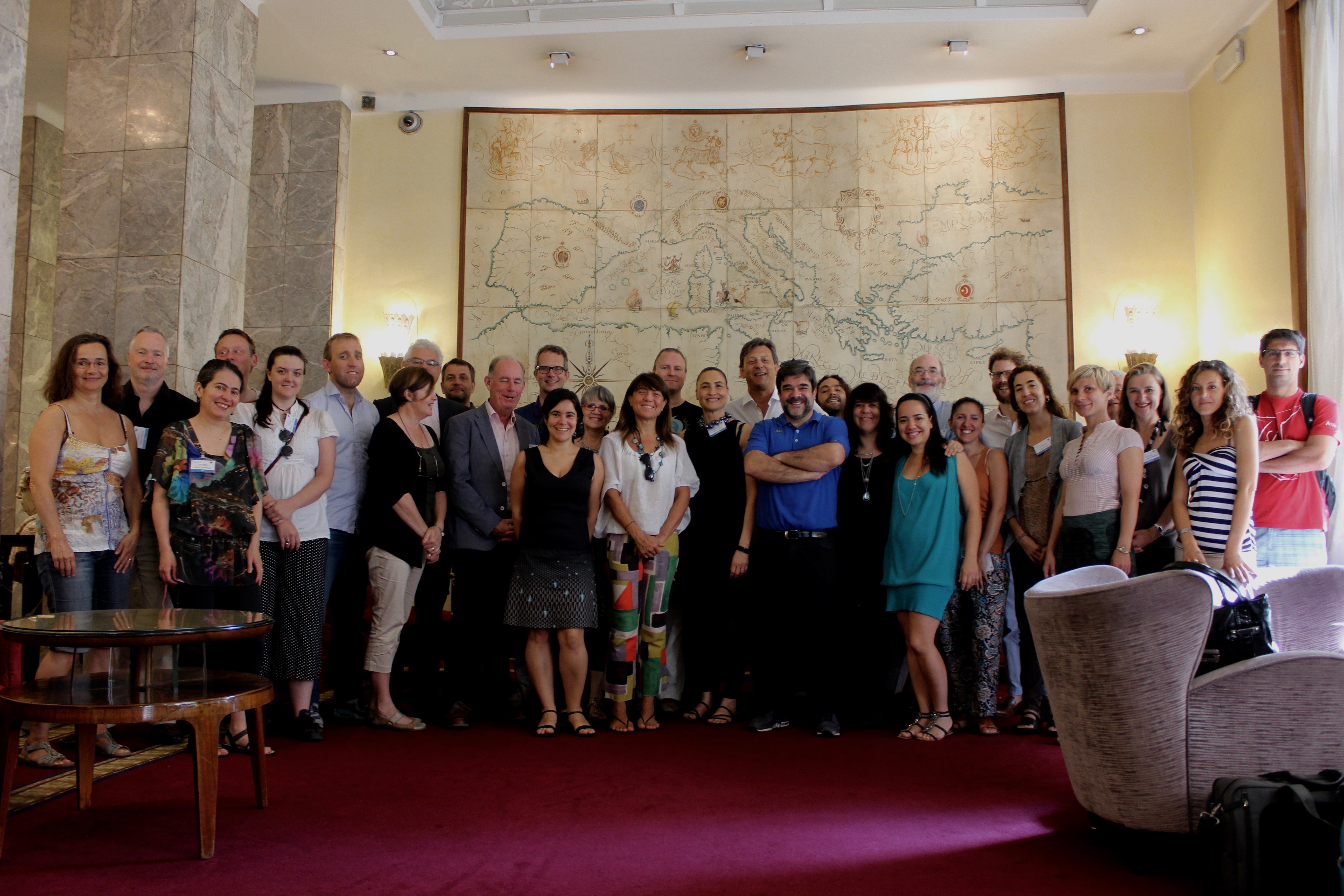
The activities of the MERCES project officially started during the 1st congress held in Rome at the Mediterraneo Hotel from 6 to 8 July 2016. The congress saw the participation of a large audience including members of the Consortium, members of the project Advisory Board, invited speakers, stakeholders and the EU Project Officer. The MERCES coordinator, Roberto Danovaro (UNIVPM), opened the congress giving a general overview of the project, highlighting its ambitions:
1. assess the outcomes of different solutions for marine restoration across habitats;
2. determine the degree of their effectiveness along with a socio-economic cost-benefit analysis;
3. define legal, policy and governance frameworks of the proposed actions.
His presentation was followed by keynote lectures from the invited speakers: James Aronson (CEFE) who presented an overview on “The present and future of ecosystems restoration”, Roberto Cimino (ENI) with a contribution on the “Environmental restoration perspectives from the point of view of a big oil company” and Matteo di Rosa (APRE) who presented “Marine Restoration in H2020 Programme: Future Directions”. Two stakeholders presented “Restoring the past, creating the future” (Cecilia Silvestri, ISPRA) and “Marine habitats restoration: a key element for a proactive protection of the marine environment” (Leonardo Tunesi, ISPRA). Two member of the MERCES Consortium presented a review on “Marine Restoration: the background of MERCES”. Finally, the EU Project Officer, Maria José Amaral, presented a contribution on the “EU’s Expectations from MERCES”. During the congress, work package co-leaders presented the aims and activities of each WP:
WP1: European marine habitats, degradation and restoration;
WP2: Restoration of marine, shallow soft bottoms habitats;
WP3: Restoration of coastal shallow hard bottoms and mesophotic habitats;
WP4: Restoration of deep-sea habitats;
WP5: Effects of restoration on the recovery of ecosystem services;
WP6: Legal governance and policy;
WP7: Socio-economic impacts of restoration;
WP8: Putting Business at the Heart of the Restoration Agenda;
WP9: Dissemination, communication and public engagement;
WP10: Project Management.
Working group sessions for each WP were organized and summary discussions presented to the audience. The congress covered the detailed planning and execution of the different tasks of the project, in particular the transfer of knowledge from the pilot studies (WPs 2-4) to the WPs (5-7) dedicated to the analysis of the recovery of the ecosystem services, legal/policy and cost-benefit socio-economic aspects of the marine restoration. Moreover, the importance of disseminate the results of the project to the largest audience including industry (WP8), experts, non-experts and EU citizens (WP9) was highlighted and different approaches were presented. During the congress, the General Assembly met for the 1st time, as well as the Steering Committee and the Advisory Board. The three management bodies (Project Management Office, Steering Committee and Advisory Board) were officially established and presented during the Kick-Off meeting.

